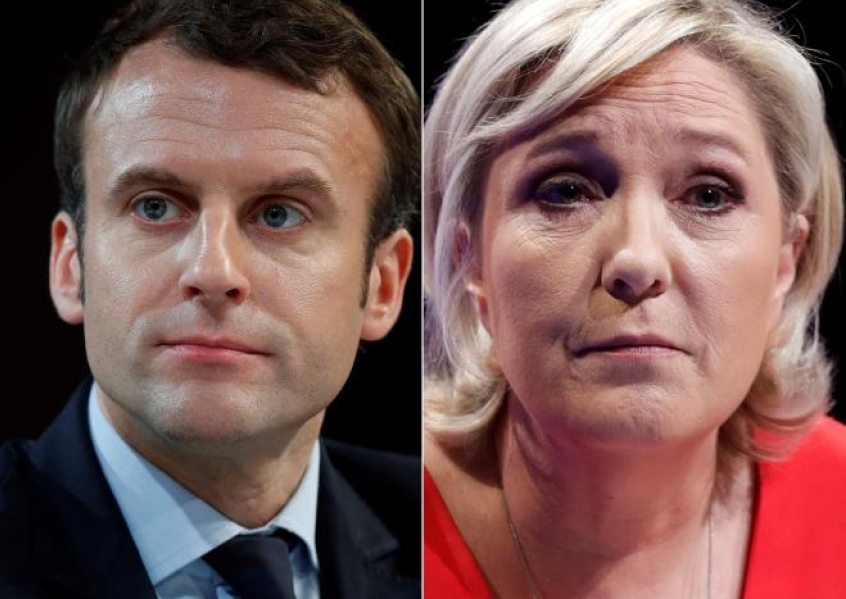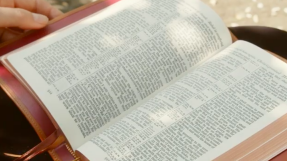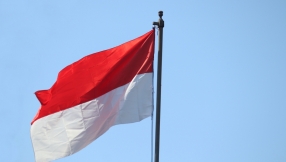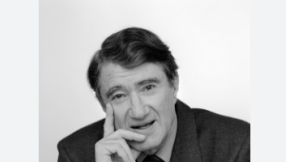There was a palpable sense of relief in TV channels' election night studios as the initial estimates of voting in the first round of France's presidential election came in on Sunday evening, with independent centrist Emmanuel Macron leading the far-right Front National's Marine Le Pen by some two per cent.
The fact Macron actually got more votes than Le Pen came as a welcome surprise to many. On the other hand, the fact that moderates were happy with her scoring 'only' some 22 per cent stands in stark contrast to the sense of shock 15 years ago in 2002, when her father Jean-Marie Le Pen unexpectedly made it into the second round with just 17 per cent. The rise of the discontent embodied by the Front National, and the issues that fuel it, cannot be ignored. The result has highlighted the nation's profound divisions.

The main area in which the forecasting polls got it wrong this time round was abstention: fewer people than expected stayed away from the polls, with voting levels roughly the same as in the last presidential election in 2012 – a fact that probably dented Le Pen's score by a few points.
As in 2002, there has now been a large degree of rallying round the non-Front National candidate in a 'republican front' to see off the perceived threat of the far right, with several candidates and leading figures moving quickly to advise their supporters to vote for Macron. The first post-election poll gave Macron 62 per cent of the vote and Le Pen 38 per cent. That might look like a comfortable margin, but it is far less than in 2002 when Jacques Chirac saw off the Front National with 82 per cent in the second round; the electorate is unlikely to be complacent.
The main ongoing source of uncertainty revolves around what voters for the runners-up will do in the second round. Far-left maverick Jean-Luc Mélenchon and mainstream right-wing candidate François Fillon finished almost neck and neck, with some 19 per cent of the vote each – that's quite a lot of votes to be redistributed between Macron and Le Pen in the run-off.
Many of Mélenchon's supporters may find it impossible to choose between 'a banker and a fascist' as one of them put it on Sunday night, and so abstain – while others may jump from one extreme to another and vote Le Pen. A fair chunk of Mélenchon's vote is simply 'anti-system'; how much exactly is anyone's guess.
Similarly, there's some doubt about how Fillon's voters will behave in the second round – notably professing Christians. During the campaign, Fillon had the strong backing of the social conservative and Catholic-dominated Sens Commun movement, and went so far as to suggest that some of them could form part of his government. Today, the movement has however refused to follow Fillon in endorsing Macron, leaving open the possibility of its supporters voting Le Pen. Sens Commun is best-known for opposing gay marriage, but such a move is not part of Le Pen's manifesto. Rather, its implicit support for her suggests some sympathy for a nasty breed of religious nationalism, with the incipient threat of racism. Overnight, some professed evangelicals have also cast their lot in with Le Pen in preference to Macron.
Ironically, the nearest equivalent to this constituency elsewhere that springs to mind are those Turks who backed Recip Erdoğan in the recent Turkish referendum: Le Pen's manifesto includes measures that would set her well on the way to gaining similar, sweeping powers.
Having been wiped out in this unprecedented first-round result, the mainstream parties are already trying to move the debate on to the forthcoming general elections, where they still stand more of a chance. Even if Macron does win the presidency, it's impossible to tell at this stage whether his fledgling party could form a parliamentary majority. Some form of coalition seems likely.
Any outcome looks like being a major headache for either of the presidential finalists – and 39-year-old Macron's leadership is entirely untested. The challenge he faces is that of bringing together an electorate united mostly by their desire for change rather than agreement about what changes to enact, and a historic tendency to resist even the changes they have voted for. The next couple of weeks of negotiations – and of course the outcome of the second round of voting – will be crucial.
In the meantime, perhaps the best thing to be said about the first-round result is that without a doubt, it has crystallised the debate about what sort of France voters want: withdrawn, protectionist, and nationalistic, or open, European, and reformist. The issues could hardly be more clear-cut.
Born in the UK, David Buick has lived in France since 1985 and has dual nationality. He is a pastor, prison chaplain, and freelance translator.













